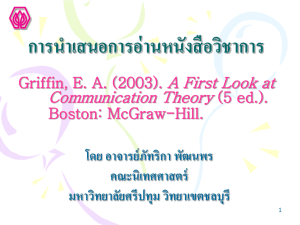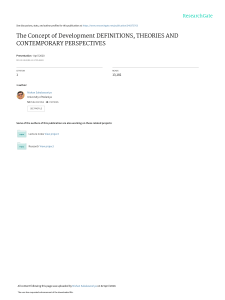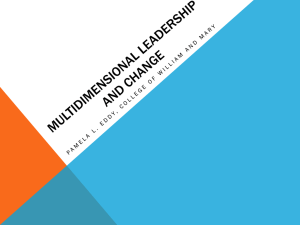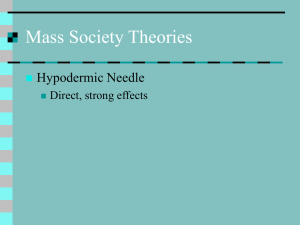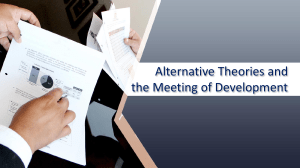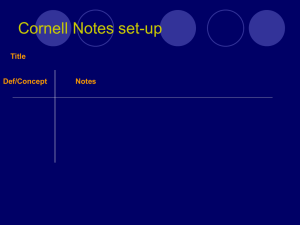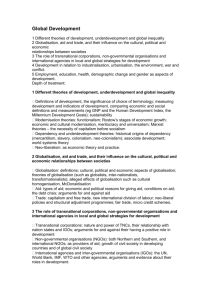1293002136SUZA 01 Introduction to Development Studies
advertisement
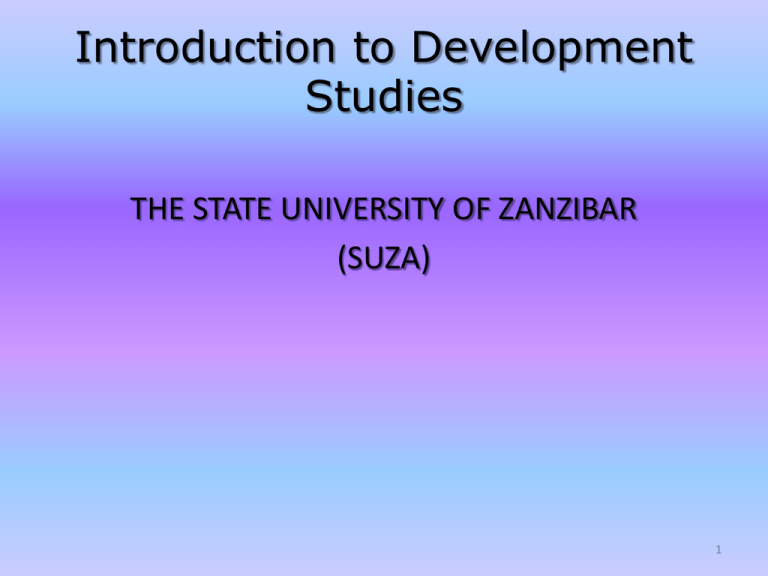
Introduction to Development Studies THE STATE UNIVERSITY OF ZANZIBAR (SUZA) 1 What is a development Studies Research field examining problems in the developing countries Comparative focus on international development of human societies Multi-discliplinary social science: primary normative object on social, political and economic issues Research interest of the post-WWII world (Cold War) Motivated by underdevelopment in the decolonizing Third World Knowledge to guide development interventions, later problematizing also the intervention itself 2 What does DS do? It provide basic information on the situation of the developing countries in an international context, from the perspectives of social and political development. It provide Central theories and explanatory models referring to the international development problem are also presented. 3 What is the objectives of this DS Course? The objective of this course is:• To expose students to the theories and problems of social development in the world in general and in particular to Africa and Tanzania. • To enable students to develop appropriate tools of analysis and integrating theory and practice • To guide student to an understanding of alternative development strategies. 4 What is to be covered? • Semester I • Semester II Theories of social development Social and Political Development in Africa Under development Political Economy The emergency and development of capitalism and imperialism in Europe The development of political thought Culture Population and resources. State and civil society Gender issues Industrialization Science and technology Government and development Tanzania foreign policy I 5 Social Development assume We evaluate that certain social, economic and political conditions and systems are more developed than others. 6 What is development • Different people have different understanding of the term. However they all end comparing space and time because development is a relative term. “This is the moment when we must build on the wealth that open markets have created, and share its benefits more equitably. Trade has been a cornerstone of our growth and global development. But we will not be able to sustain this growth if it favours the few, and not the many” Barack Obama 7 WHAT IS DEVELOPMENT? • Is a process of economic and social transformation which is based on complex cultural and environmental factors and their interactions. • Development is a process of improved standard of living. • Development was a process in which ‘societies’ defined as nation states pass through similar stages of development on the road to an end state. • Development is a multi-dimensional and multi-sectoral process, involving social, economic and political change aimed at improving people’s lives. 8 WHAT IS DEVELOPMENT? Development refers both to the ends of social change and to the means employed to reach these: to the vision of a better life. Development poses value conflicts in four respects: ● Debates over goals: economic growth, meeting basic needs, cultural survival, ecological balance, power transfers; ● competing political systems. ● Contending economic systems: rival claims on resources and differing rules of access to resources ● Conflicts between modernity and tradition. 9 Human Development • It is the process of enlarging people choices it has about four aspect:• For people to lead a long and a healthy life • For people to acquire knowledge • For people to have access to resources needed for a descent standard of living. • People enjoyed self respect and guaranteed human right. 10 Under Development. • US-President Truman’s ‘bold new program’ announced on January 20, 1949, defined Africa, Asia and Latin America as ‘underdeveloped areas’ in need of ‘development’ • Underdevelopment is the absence of modern economic growth that characterizes Third world countries by comparison with the developed nations of the West. 11 Three Dimensions of Development As a process – Patterns of change in the global political economy of capitalism As an object of knowledge – Theories about development as a process and a project As a project – Policies and strategies that seek to give shape to and control processes of social change 12 Focus in Development 1. indicators and symbols of development 2. causal relationships, rules and methods constituting knowledge 3. historical context 4. political agenda-setting (idiologies/phylosophy) 13 Indicators and symbols of development Health Economic resources Education Social integration Housing Security Recreation Political resources - physical abilites, illnesses,doctor - income, wealth, property - years of education attachments and contacts - space, nr of persons/room exposure of violence/theft - leisure pursuits, theatres voting, memberships 14 Causal relationships 1. Physical Environment - Climate Resources Communication 2. Social Environment - Social systems and their mechanisms 3. Heredity - Intelligence 15 Historical Context Development • makes sense only in the realization of history • is not, however, reduced to history • is more abstract and theoretical than history (past, history, development) • is manifested in histories (plural) • is considered as a reaction to problems 16 Political Agenda-Setting • different definitions and focuses highlight different evaluations, which • privilege particular political interests or cultural preferences and • set particular policy implications and future projects 17 References: • Pieterse, J.N (2004) Development Theory. Vistaar: New Delh • Keller,S; Light, D. And Calhoum,G (2004) Introduction to Sociology. McGrwa Hill. NY • Hutton, John (1979) The Mystery of Wealth; Political economy Its development and Impact on the world stage. • Clark, D.A (2006)The Elga Companion to Development studies. Elga: USA • Deneulin,S. and Shahani, L (2009) An Introduction to Human Development capability approach. Earthscan. NY 18 THANK YOU FOR LISTINING 19
